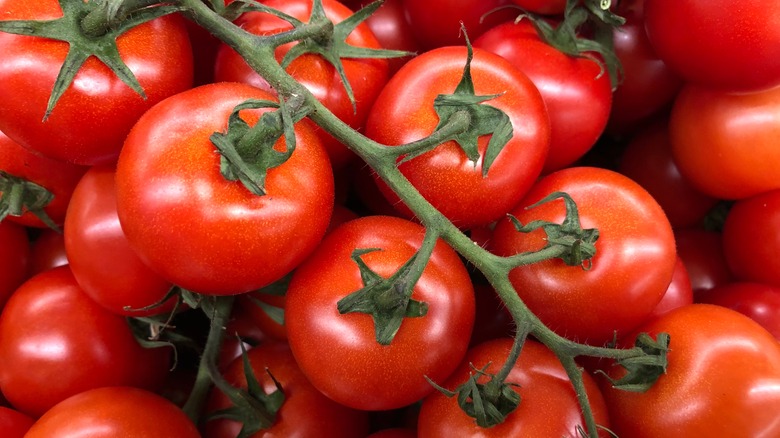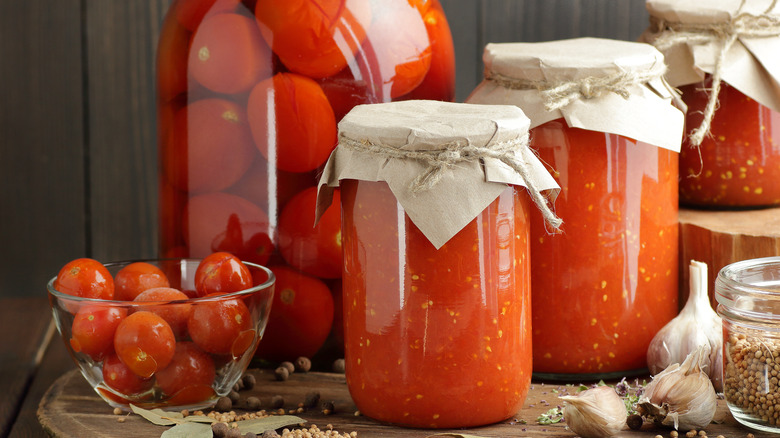Why The Supreme Court Ruled That Tomatoes Are A Vegetable
Tomatoes have a complicated history. Although they were once considered poisonous, they are now a staple of well-known cuisines around the world. Popular tomato recipes come from Mexico, Italy, and the Middle East, to name a few. Chances are the debate about whether tomatoes are a fruit or a vegetable was not considered when creating the decadent dishes we have come to love — though this confusion did lead to some surprising policy decisions over the years.
Fruits and vegetables both come from plants, but the real difference is that fruits have seeds, while vegetables make up the plant's roots, stems, and leaves (via LiveScience). Although tomatoes have seeds, they're more commonly eaten with veggies, so in the past, policymakers have attempted to use this to classify tomatoes as vegetables in school lunches in the U.S. In 2011, for example, congress deemed that tomato sauce could make pizza count as a veggie for school lunches, and that's how the 'pizza is a vegetable' meme was born.
Tomatoes have clearly been misunderstood throughout history — so why did the U.S. Supreme Court decide, more than 100 years ago, on whether tomatoes are a fruit or a vegetable?
The surprising link between tomatoes and taxes
The reason the U.S. Supreme Court ruled tomatoes as a vegetable occurred from a lawsuit over tax policy in the 1880s. As cities grew, the global crop trade changed. Rather than selling produce locally, new wholesale companies were transporting fresh fruits and vegetables from faraway fields into urban areas. A Manhattan company, John Nix & Co., used steamships to import foods like onions, from Bermuda, and potatoes from Europe (per the Washington Post).
However, U.S. tax laws at the time charged a 10% tariff on imported vegetables — but not on fruits. When John Nix was taxed on a ship full of tomatoes from the Caribbean, he tried to argue his way out of paying by claiming tomatoes were technically fruits, not vegetables.
The case, Nix v. Hedden, went all the way to the Supreme Court in 1893, where the justices unanimously disagreed with Nix and affirmed the tomato as a vegetable. Justice Horace Gray admitted the scientific realities of tomatoes but argued that their practical use was more important. "Botanically speaking, tomatoes are the fruit of a vine, just as are cucumbers, squashes, beans, and peas," he stated. "But in the common language of the people, whether sellers or consumers of provisions, all these are vegetables."
A quote from Irish rugby player Brian O'Driscoll sums it up best: "Knowledge is knowing that a tomato is a fruit. Wisdom is knowing not to put it in a fruit salad."

